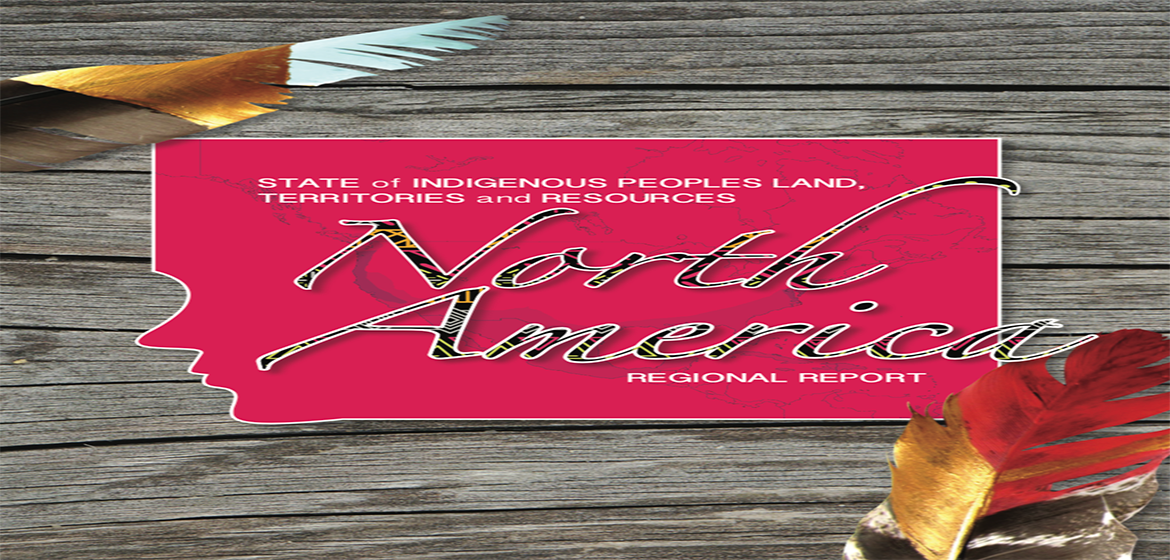Executive Summary
“Keep using the lands, waters, foods and medicines that we originally used, so that we can protect these things for our Nations and future generations.”
-- Recommendation from the Treaties 1-11 Elders Gathering, August 28th, 2017, Taywa Tagamou Nation, Treaty No. 9 Territory, Ontario Canada
“They made us many promises, more than I can remember, but they never kept but one; they promised to take our land, and they took it.”
-- Chief Red Cloud, Oglala Lakota
The Colonial Settlers representing the counties of Europe arrived in North America armed with European weapons, religions, new diseases and the Doctrine of Discovery to justify their conquest of the Indigenous Peoples and the appropriation of their lands and resources. They begin to make Treaties with many of the Indigenous Nations, promising to uphold peace and friendship, share or travel the land and respect their status as sovereign governments, which were unilaterally abrogated and broken.
Once the settler governments of Canada and the United States were established, they adopted laws, policies and court decisions that allowed further appropriation of land and water, forced relocations and treaty abrogations. They also curtailed the legal authority of Indigenous Nations to protect their traditional lands, resources, sacred places, eco-systems, and traditional livelihoods. Many Indigenous Nations were relegated to much-diminished land bases known as reserves and reservations while others were left with no legal status or recognized land whatsoever. This bitter history and its ongoing impacts on the health, rights and well-being of Indigenous Peoples of North America are presented in detail in the body of this report. It also presents examples of the revitalized efforts and successful strategies being carried out by Indigenous Peoples of North America to protect, defend, manage and restore their lands, waters, Treaty rights and traditional practices, and to ensure the transmission of their traditional knowledge and practices to new generations. The adoption of the UN Declaration on the Rights of Indigenous Peoples and its eventual endorsement by the governments of the US and Canada is seen as an historic achievement. Its full and effective implementation would provide solutions and remedies to both the causes and impacts addressed in this report. This report concludes by affirming that Indigenous Peoples in North America will continue to suffer from loss of lands, territories and resources until the United States and Canada ensure: (1) Full implementation of the UN Declaration on the Rights of Indigenous Peoples; (2) Full recognition for and implementation of Treaties and Treaty Rights; and (3) Full implementation of the Right to Free, Prior, and Informed Consent (FPIC). It offers the following recommendations:
1) That the U.S. and Canada establish Commissions to speci cally review and assess the steps taken to implement the recommendations made to each country by Treaty Bodies, Special Rapporteurs and the UPR reviews regarding the rights of Indigenous Peoples and treaty rights to lands, territories, resources, and sacred places; and to take steps, in conjunction with Indigenous Peoples, for the full and effective realization of these rights;
2) That the U.S. and Canada develop new legal strategies and procedures to address Treaty violations where the courts or justice systems of the State Treaty party are not the sole arbitrator; implement new, participatory, fair and transparent processes to resolve Treaty dis putes and violations in which both Treaty parties decide the solutions as equals; and support regional and/or international oversight and resolution processes to be used when disputes cannot be resolved between the parties as per Article 24 of the American Declaration on the Rights of Indigenous Peoples;
3) That the U.S. and Canada respect and support the traditional knowledge and practices of Indigenous Peoples regarding management and protection of their traditionally used and occupied territories and resources, including those recognized in Treaties, and provide support and recognition for Indigenous-controlled and run, resource and ecological management programs;
4) That the US and Canada respect the inherent self-determination of Indigenous Peoples and their right to full participation in the development of participatory mechanisms as provided by the UN Declaration Articles 37, 27, 28 and 40;
5) That the U.S. and Canada create national-level bodies with full, effective, equal participation of Indigenous Peoples in decision-making based on FPIC, to implement and put into practice the UN Declaration on the Rights of Indigenous Peoples, including processes for ongoing review and evaluation;
6) That the U.S. and Canada support full participation of Indigenous peoples in discussions regarding lands, territories and resources and implementation of the 2030 Sustainable Development Goals, including in National implementation plans and commitments; and,
7) That the United Nations eliminate discrimination against Indigenous Peoples from and within “Developed” countries regarding access to international and UN funding established to assist Indigenous Peoples.
Download Regional Report
Published by: Indigenous Peoples Major Group for Sustainable Development
This publication has been produced with the assistance of the Rainforest Foundation Norway (RFN), International Work Group for Indigenous Affairs (IWGIA) and European Union. The contents of this publication are the sole responsibility of the Indigenous Peoples Major Group (IPMG) for Sustainable Development and can in no way be taken to re ect the views of the RFN, EU and IWGIA.
Related to SDG 10: Reduced inequalities, SDG 15: Life on land and SDG 16: Peace, justice and strong institutions



